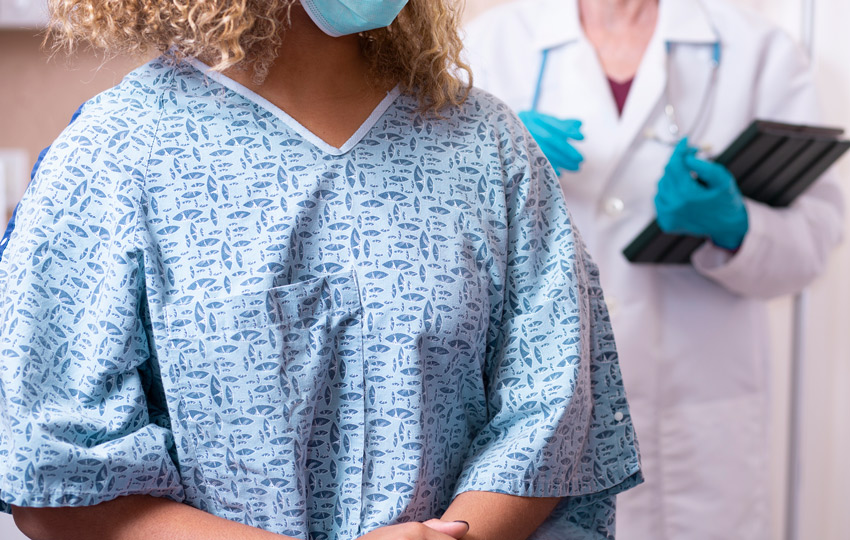Though the vaccine is safe, it can cause swelling of lymph nodes that can show up on a mammogram.
With varying recommendations surrounding screening mammograms—what age to start and how often to screen— the issue of when to schedule a mammogram screening following a COVID-19 vaccination can add further confusion.
The COVID-19 vaccine is safe, but is more likely to cause the development of axillary adenopathy-swelling of lymph nodes and pain in the underarm, in contrast to other vaccinations like influenza and shingles. This is independent of the vaccination manufacturer (Moderna vs. Pfizer), the arm injected or whether it is the first or second dose.
Lymph nodes in the underarm are often visible on a mammographic image, and can be compared for stability similar to the breast tissue. Following a COVID-19 vaccination, these nodes can temporarily undergo changes that can be seen on the mammogram. These changes, while not specific, can be similar to those seen with infection, inflammation, and breast and other cancers; and can lead to additional tests to confirm they return to normal appearance after the swelling subsides.
Recommendations for avoiding the possibility of needing additional tests, suggested by the Society of Breast Imaging and the Vanderbilt Breast Center, include the following:
- Consider scheduling your screening mammogram before your first COVID-19 vaccination dose.
- Consider scheduling your screening mammogram 4-6 weeks after the second dose.
- Please tell the technologist performing your screening mammogram if you have recently received a COVID-19 vaccination.
If you are called back for a change or abnormal appearance of your lymph nodes, you can anticipate the following:
- Inquiry regarding whether or not you have received a COVID-19 vaccination recently;
- Possible ultrasound of the area;
- Possible additional mammographic images;
- Possible short term follow-up.
The same changes may be seen with other imaging tests such as a CT scan of the chest, with similar additional possible imaging tests and follow-up.
This information should be used as a guide to inform your personal decision to receive a screening mammogram in the context of a recent COVID-19 vaccination. Personal risk of breast cancer, costs and time may be additional considerations that influence that decision.
This post was written by Courtney Raybon, M.D., Breast Imaging Fellow, and Andrea Birch, M.D., Professor of Clinical Radiology specializing in breast imaging at Vanderbilt Breast Center at One Hundred Oaks in Nashville.

Vanderbilt’s Breast Center provides the region’s most comprehensive services for breast health, offering a full range of services from routine screenings and diagnostic mammography to the diagnosis, prevention and treatment of breast cancer. To make an appointment, call 615-322-2064.

